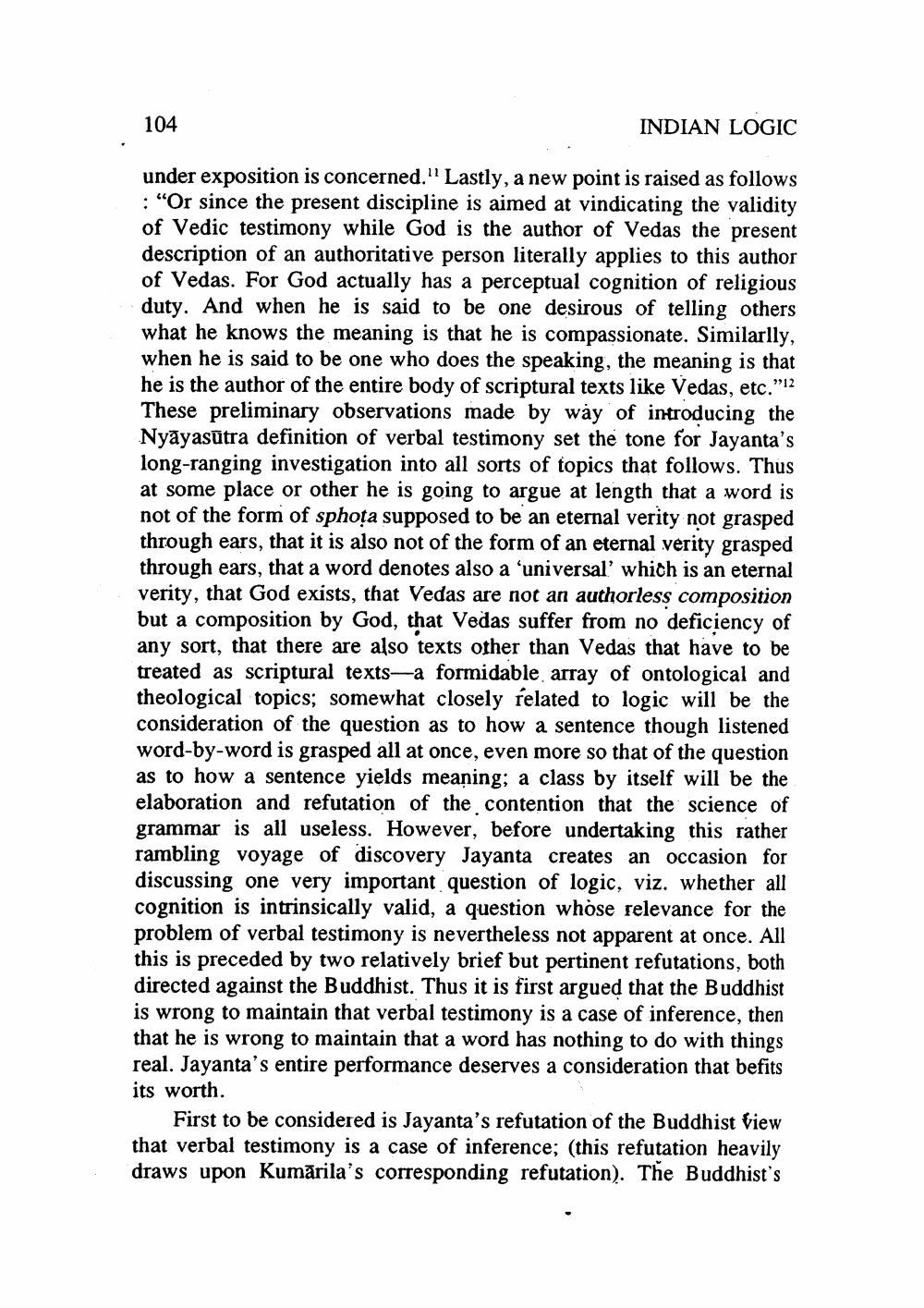________________
104
INDIAN LOGIC
under exposition is concerned." Lastly, a new point is raised as follows : "Or since the present discipline is aimed at vindicating the validity of Vedic testimony while God is the author of Vedas the present description of an authoritative person literally applies to this author of Vedas. For God actually has a perceptual cognition of religious duty. And when he is said to be one desirous of telling others what he knows the meaning is that he is compassionate. Similarlly, when he is said to be one who does the speaking, the meaning is that he is the author of the entire body of scriptural texts like Vedas, etc.”!2 These preliminary observations made by way of introducing the Nyāyasūtra definition of verbal testimony set the tone for Jayanta's long-ranging investigation into all sorts of topics that follows. Thus at some place or other he is going to argue at length that a word is not of the form of sphota supposed to be an eternal verity not grasped through ears, that it is also not of the form of an eternal verity grasped through ears, that a word denotes also a ‘universal' which is an eternal verity, that God exists, that Vedas are not an authorless composition but a composition by God, that Vedas suffer from no deficiency of any sort, that there are also texts other than Vedas that have to be treated as scriptural texts—a formidable array of ontological and theological topics; somewhat closely related to logic will be the consideration of the question as to how a sentence though listened word-by-word is grasped all at once, even more so that of the question as to how a sentence yields meaning; a class by itself will be the elaboration and refutation of the contention that the science of grammar is all useless. However, before undertaking this rather rambling voyage of discovery Jayanta creates an occasion for discussing one very important question of logic, viz. whether all cognition is intrinsically valid, a question whose relevance for the problem of verbal testimony is nevertheless not apparent at once. All this is preceded by two relatively brief but pertinent refutations, both directed against the Buddhist. Thus it is first argued that the Buddhist is wrong to maintain that verbal testimony is a case of inference, then that he is wrong to maintain that a word has nothing to do with things real. Jayanta's entire performance deserves a consideration that befits its worth.
First to be considered is Jayanta's refutation of the Buddhist View that verbal testimony is a case of inference; (this refutation heavily draws upon Kumārila's corresponding refutation). The Buddhist's




